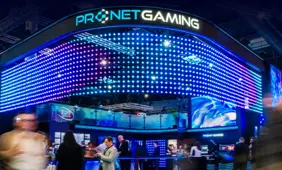S&P Global Ratings Predicts Macau Hardships from Loss of Casino Junkets
S&P Global Ratings has issued a recent report warning that the gaming sectors in Macau and Cambodia are unlikely to return to pre-pandemic performance levels in the near term. This is primarily due to the loss of casino junkets, which have continued to lose favor in the industry.

While tourism volumes from China to destinations like Macau, Malaysia, and Singapore have largely recovered to pre-COVID-19 figures, the absence of junket-driven VIP play continues to weigh heavily on gross gaming revenue (GGR) in specific markets. The report emphasizes that the elimination of junkets is a significant structural shift that continues to impact both Macau and Cambodia.
Related: Macau Adjusts Budget to Reflect Slow Gaming Revenue GrowthThe authors of the report noted that markets such as Macau and Cambodia face a slower path to full GGR recovery. This trend is directly linked to the historical reliance on junket operators, which previously played a central role in channeling high-rolling gamblers, particularly from mainland China, into VIP rooms.
According to the analysis, the current environment reflects a broader, long-term crackdown rather than a short-term disruption. Regulatory changes and anti-corruption initiatives in China have significantly reduced the influence and presence of junkets in regional gaming operations.
In terms of consumer demographics, S&P described the Chinese player segment as vital to the Asia-Pacific gaming economy, citing their strong spending power, frequent gaming activity, and a greater tendency to gamble compared to other customer groups. Despite this, S&P forecasts that Macau's total GGR for 2025 will grow by a modest 3% to 6% year-on-year, reaching only about 80% of its 2019 levels.
This growth is expected to be driven primarily by the mass-market segment, which now represents approximately 75% of total GGR in the region and has already surpassed pre-pandemic performance in 2024.
However, the ratings agency cautioned that the rise in mass-market revenue cannot fully compensate for the decline in VIP GGR, which historically generated significant profits for Macau operators. The report also highlighted that Macau's casino companies will likely concentrate on improving earnings before interest, taxes, depreciation, and amortization (EBITDA) amid ongoing economic challenges and rising regional competition. Furthermore, the pace of deleveraging for these operators may slow as they weigh new investments against shareholder returns.
More Business News
Other Analysts Have Different View
Brokerage firm CLSA recently provided a slightly more optimistic view, suggesting that the opening of new premium properties in Macau's Cotai district could contribute to a 7.6% year-on-year rise in GGR for 2025, with a projected total of HKD234.8 billion (US$30 billion). Despite this, CLSA warned that industry-wide EBITDA margins have limited room for expansion, indicating that operators may face pressure to manage costs effectively in a constrained margin environment.
Regarding Cambodia, S&P reported that the nation's GGR is unlikely to return to 2019 levels. This is largely attributed to the disappearance of Chinese junket operators, who were responsible for around 70% of the country's gaming revenue prior to the pandemic.
NagaWorld, the leading integrated resort operated by NagaCorp in Phnom Penh, has been particularly affected. The ratings agency identified funding needs as a key area of concern for NagaCorp and indicated that the company is in the process of reassessing the scale of its Naga 3 casino development to better align with current market conditions.
According to S&P, NagaCorp's debt management strategies remain unclear, and more transparency regarding its growth plans and shareholder return commitments will be necessary to evaluate its financial trajectory. The report added that NagaCorp's recovery has been slower compared to regional peers.
Nonetheless, in April, the company reported a 17.7% year-on-year increase in GGR for the first quarter of the year, totaling nearly $171.2 million, based on a filing with the Hong Kong Stock Exchange.
In Australia, a key market served by Crown Resorts and The Star Entertainment Group, the casino industry continues to attract affluent Asian players. However, S&P noted that tighter regulations surrounding anti-money laundering and know-your-customer protocols are placing pressure on GGR, particularly in the VIP gaming segment.
These enhanced compliance requirements are expected to remain a constraint on high-value play for the foreseeable future.
RELATED TOPICS: Business
Most Read
Must Read
 Interviews
Interviews
Exclusive Interview: Levon Nikoghosyan Shares AffPapa Winning Formula for Successful iGaming Events
Dec 03, 2025 Interviews
Interviews








Review this New Post
Leave a Comment
User Comments
Comments for S&P Global Ratings Predicts Macau Hardships from Loss of Casino Junkets